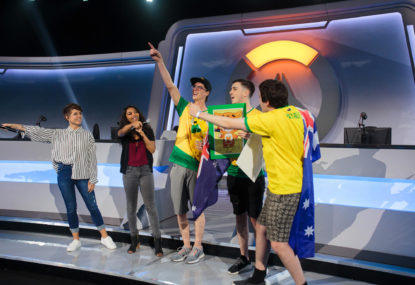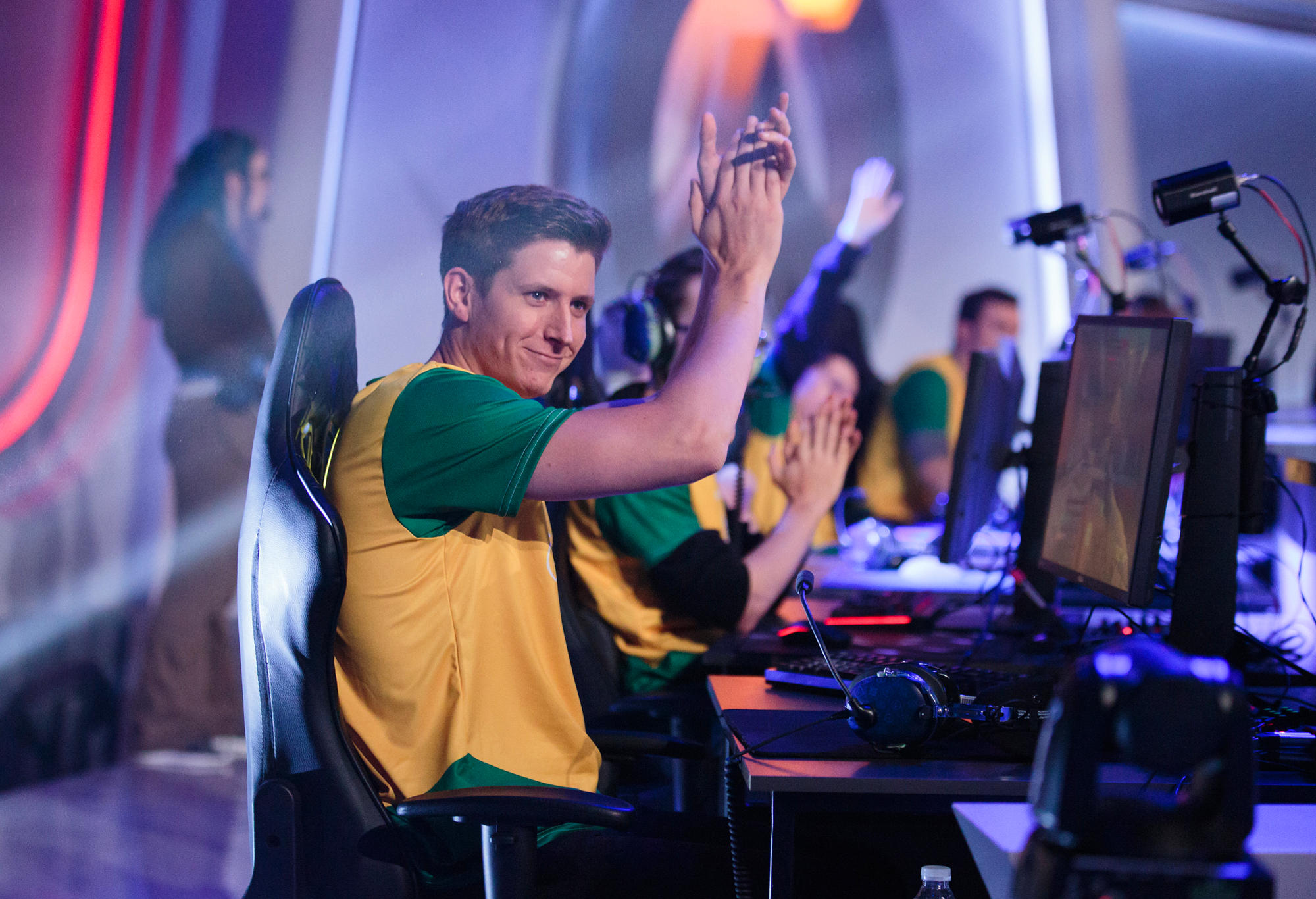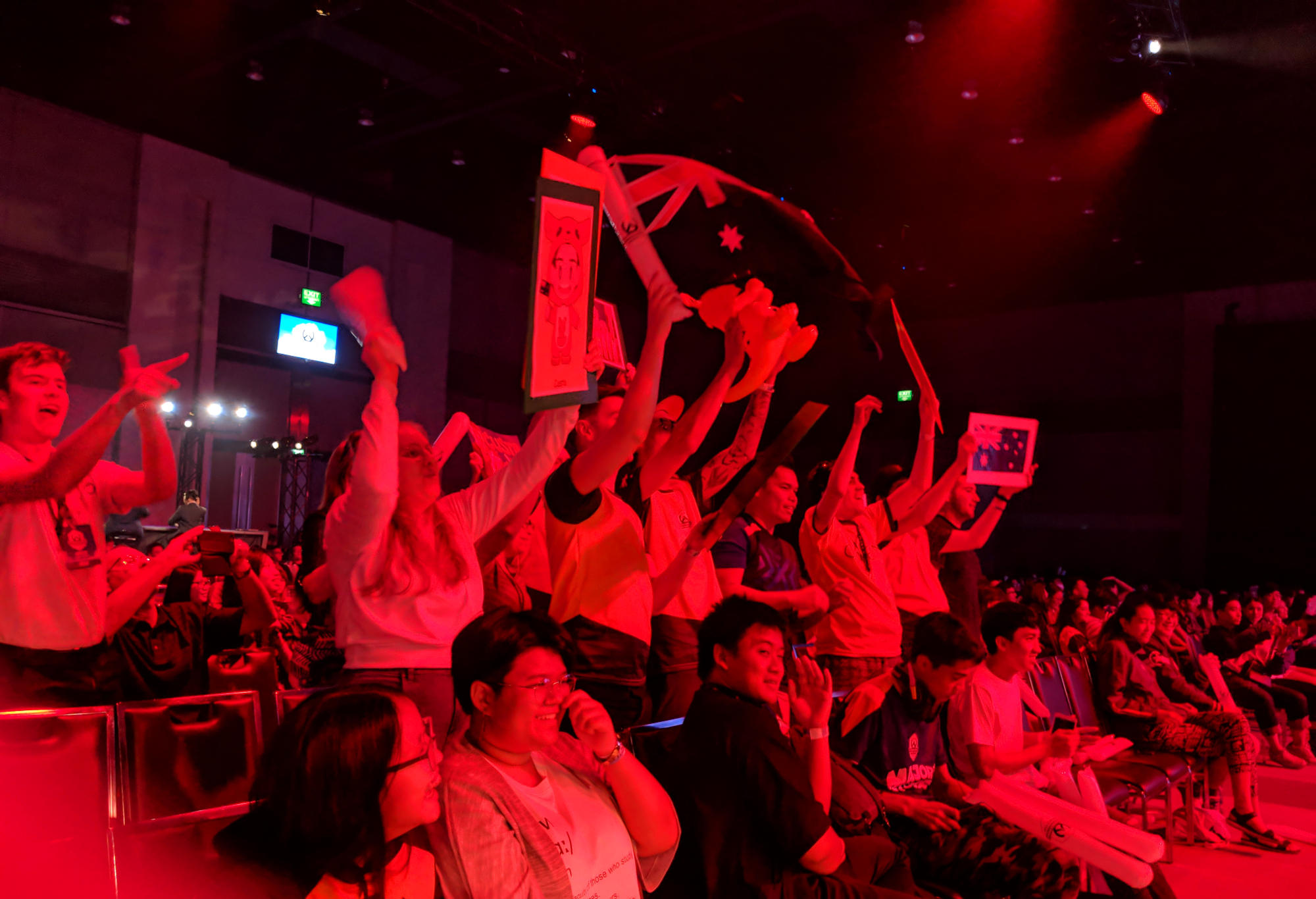2022 Trivia: The Roar's jam-packed Christmas Day sports quiz!
The jam-packed month-by-month quiz full of 2022 sports trivia!

It’s hard to see any scenario where Group C isn’t remembered as the most memorable stage event at this year’s Overwatch World Cup and nothing is more memorable, from an Australian perspective, than the green and gold defying all expectations and qualifying for the knockout stage at BlizzCon.
Human civilisation will never adequately explore all the talking points that emerged from Group C, but here are the five we managed to pluck from the third and final day.
I’m more than happy to trot out the fact I predicted Australia to make it out of Group C in a World Cup prediction article but, admittedly, those thoughts came more from the heart than the head.
We certainly didn’t have it all our own way, but the Aussies not only surprised everyone by qualifying for the quarter-finals, they also proved beyond doubt they deserved to be there.
While the only match they played on day three was a 3-2 loss to China – an impressive result given they were up against the undefeated world number one team – Sweden’s upset win over Denmark played a massive helping hand as Australia booked a second straight spot to BlizzCon.
The fact that Australia, ranked 16th (including host countries) out of 24, managed to finish second in a group that featured China (ranked first), Sweden (fifth) and Denmark (ninth) is unprecedented.
If the tiebreaker map against China had gone the other way, the Aussies would have remarkably topped the group altogether.
Simply put, no other national team of ours has been able to overperform at the international level to the extent our Overwatch team has.
You don’t need to necessarily start caring about esports, but you have to respect the incredible achievement this group of committed young men has orchestrated.

The leadership of Custa has been instrumental in helping Australia progress. (Photo: Robert Paul/Blizzard Entertainment)
Custa (Scott Kennedy) was always going to be Australia’s MVP in Bangkok and, while I’d written about tank duo Trill (Ashley Powell) and Punk (Leyton Gilchrist) dominating their matchups, as well as the sublime efforts of CKM (Felix Murray) and great improvement of Akraken (Dario Falcao-Rassokha), one player had escaped mention – until today.
Hus (Huseyin Sahin) had proved more than serviceable as Sombra for much of the first two days, but his performance with Widowmaker on King’s Row and Temple of Anubis was vital in helping his side take the maps they needed off China to qualify for the quarter-finals.
Australian fans quickly became enamoured with the DPS player after his plethora of clutch kills across the maps, and he was one of very few Widow players who can say they walked away from Bangkok having outdueled both of China’s snipers in leave (Huang Xin) and Krystal (Cai Shilong).
He made friends in the press gallery too after cheekily responding to a question about what he had for breakfast that morning with “Chinese”.
It’s certainly not as if he’d played poorly during the previous two days – his Sombra was incredibly reliable – but him taking it to the next level proved the icing on the cake in a tournament where the Australian players clearly got better as it wore on.
We may be on our way to the knockout stage in two months’ time and, while Australia said in their press conference they wanted to mainly work on communication and execution between now and then, they need to put serious work into their performance on Control maps.
While coach Gunba (Jordan Graham) cited the need to perfect a rigid playstyle thanks to limited preparation, Control maps were virtually a free map for Australia’s opponents this tournament.
They got themselves off on the wrong foot against Spain, Denmark and China with comprehensive Control losses – and each one was on a different map – before losing their fourth out of six in the Chinese tiebreaker.

There were plenty of Australian fans flying the flag in Thailand. (Photo: Stirling Coates/Conversant Media)
Australia went undefeated on Escort maps, 4-1 on Assault and 3-2 on Hybrid, but often looked badly disoriented in the match-openers.
Custa recognised this in the press conference, claiming the team “didn’t really have a chance” on the Control maps against China and were “trying to mix things up towards the end [and] just trying to find something that worked”.
For the sake of not consistently allowing their opponents to win the first map, the team must put enormous focus into that map category before the quarter-finals begin.
I have egg on my face after predicting China would finish 2-3 and fail to make it out of the group stage, but their 5-0 finish to the tournament doesn’t reflect the extent to which the other teams pushed them around.
Three of China’s wins required an extra map to be decided and, while they obviously deserve immense credit for holding their nerve in those tiebreaker situations, they could very easily have had things go the other way.
When asked both why they needed a fifth map to win matches, but also how they consistently came through in the deciders, coach RUI (Xingrui Wang) had an interesting take.
“We scrim a lot on the Control maps,” he said (through a translator).
“We felt pretty strong on Control maps and have a higher winrate on them – that’s the main reason [we won a lot of map fives]”.
“The reason we meant to map five quite often was because the substitution rules often restricted us from bringing the roster we wanted to certain maps,” he added.
Would China have had more matches wrapped up in regulation if they had things their way? Who knows.
From what we saw, however, they’re an immensely talented side – but still very gettable at 5-0.
While many Australian fans were understandably dismayed about us missing out on a group stage event this season, any skepticism about Thailand’s ability to hold an enormous esports event would have been well and truly quashed after this event.
The Royal Paragon Hall in Siam Square was consistently packed across the three days, with the Thai fans offering their team unwavering and vocal support despite enduring four losses that ranged from heartbreaking to ugly.
No one will ever quite know why they threw their support behind Denmark so heavily as well, but you couldn’t but be swept up in the atmosphere when Thailand finally broke through with a 3-1 win over Spain in the last match of the weekend.
Both Australia and China’s captains admitted to only being worried about Dallas Fuel’s Mickie (Pongphop Rattanasangchod) prior to the tournament, but walked away in gobsmacked awe at 15-year-old phenom Patiphan (Patiphan Chaiwong), tank player Teetawat (Teetawat Teerayosyotin) and Ana sensation Pannys (Pasavit Svasti-xuto) by the end.
The local side probably deserved more than one win for their efforts, but they unearthed some genuine talent for the future and kept their loyal fans entertained across all three days.
I, for one, hope they can go even better next year.
Disclaimer: Stirling Coates was to flown to Bangkok courtesy of Blizzard Entertainment for the purposes of covering this event.